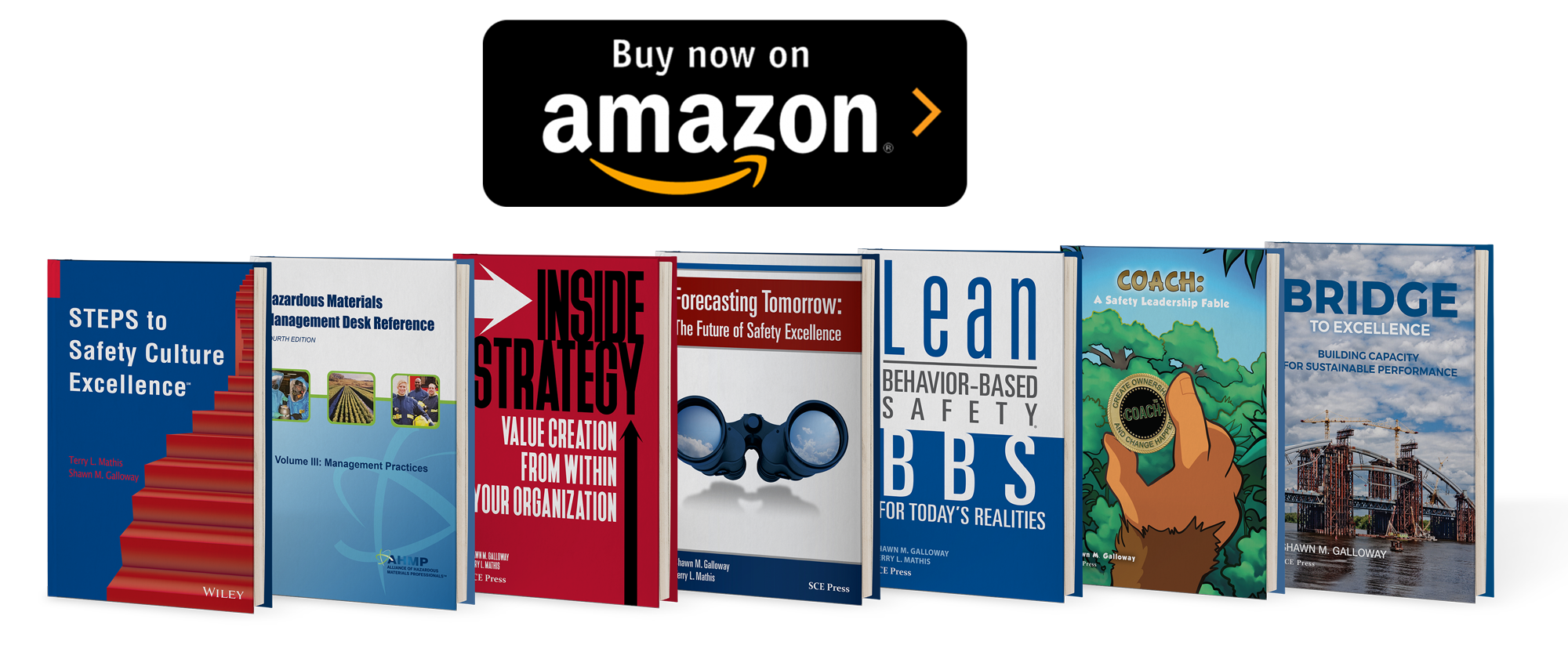BIC - December 2014
By: Shawn M. Galloway
Printable Version
How is playing chess the perfect analogy for universally improving safety? On April 12, 1964, 21-year-old Bobby Fischer participated in an exhibition match against 50 players resulting in 47 wins, two draws and one loss. I would imagine the individual to whom he lost, Donn Rogosin, was on a high the rest of that day.
Aside from experience, what do masters of chess have over the average amateur? What is their competitive advantage? They have the ability to quickly recognize patterns from experiences and then see the right moves, thinking multiple steps ahead. And in the case of masters, they think across multiple games.
Like Fischer, most people are carrying out multiple tasks at once and there are hazards everywhere. Not all hazards turn into risks, and not all risks turn into incidents. Of course, we should do all we can to provide a safe work environment, but we should take safety a step further and help the customers of our efforts think multiple steps ahead and learn to recognize the patterns of hazards and risks that can lead to better outcomes.
While running errands the other day, I pulled into the parking lot of a large hardware store for a conference call. During the conversation, I noticed a gentleman several spaces to my left loading his truck with the many treasures his visit yielded. I didn't pay much attention to the steel flatbed cart immediately next to his rear right tire of his now fully loaded truck. Apparently, he didn't either. As he pulled out of his space while turning to the right, a loud thud and hissing sound followed.
As my conference call ended and while witnessing the man struggling to jack up his truck, I offered to assist. While clearing out his truck to access his spare tire located in the middle of the bed, I noticed a door frame with shattered glass. Apparently, earlier that day, he inadvertently backed a tool into the glass door of the home where he was working. This was the impetus for his visit to the hardware store. As he handed me his spare out from under his load, I noticed it felt only two-thirds full of air. Knowing this was going to be placed onto the fully loaded truck, I expressed concern. He pointed to the nearby auto parts shop to convince me he would procure air there for safe passage home. Unfortunately, I had to be elsewhere so I'll forever be optimistic of the outcome.
The gentleman's series of unfortunate events were all preventable if the hazards and risks were identified proactively. I learned the man who I helped was an experienced handyman and had been at his trade for over 40 years. How had this experienced, jack-of-all-trades handyman had so many preventable events occur in the same day?
We all have experiences we can choose from where, after the event, the prevention points become obvious. But the challenge is helping others identify them proactively. Consider sharing this article and story with those you work with and see if they can identify the many prevention points within. Then, discuss the type of work they will be carrying out and ascertain the hazards and risks and what steps could be taken to control them.
Author Joshua Foer writes, "Chess grandmasters have average cognitive skills and average memories for matters outside of chess, and only show their extraordinary skills within the discipline of chess." Research shows expertise can be developed to help people see patterns in experience and internally delineate the right path forward. We can only go so far with engineering and administrative controls in safety, and we can't be everywhere. Sometimes the best tool we have is to help people see and think differently; in fact, this is how all progress begins.
 Shawn M. Galloway is the CEO of ProAct Safety and co-author of several bestselling books. As an award-winning consultant, adviser, leadership coach and keynote speaker, he has helped hundreds of organizations within every major industry to improve safety strategy, culture, leadership and engagement. He is also the host of the highly acclaimed weekly podcast series Safety Culture Excellence®.
Shawn M. Galloway is the CEO of ProAct Safety and co-author of several bestselling books. As an award-winning consultant, adviser, leadership coach and keynote speaker, he has helped hundreds of organizations within every major industry to improve safety strategy, culture, leadership and engagement. He is also the host of the highly acclaimed weekly podcast series Safety Culture Excellence®.
For more information, call (936) 273-8700 or email info@ProActSafety.com.
